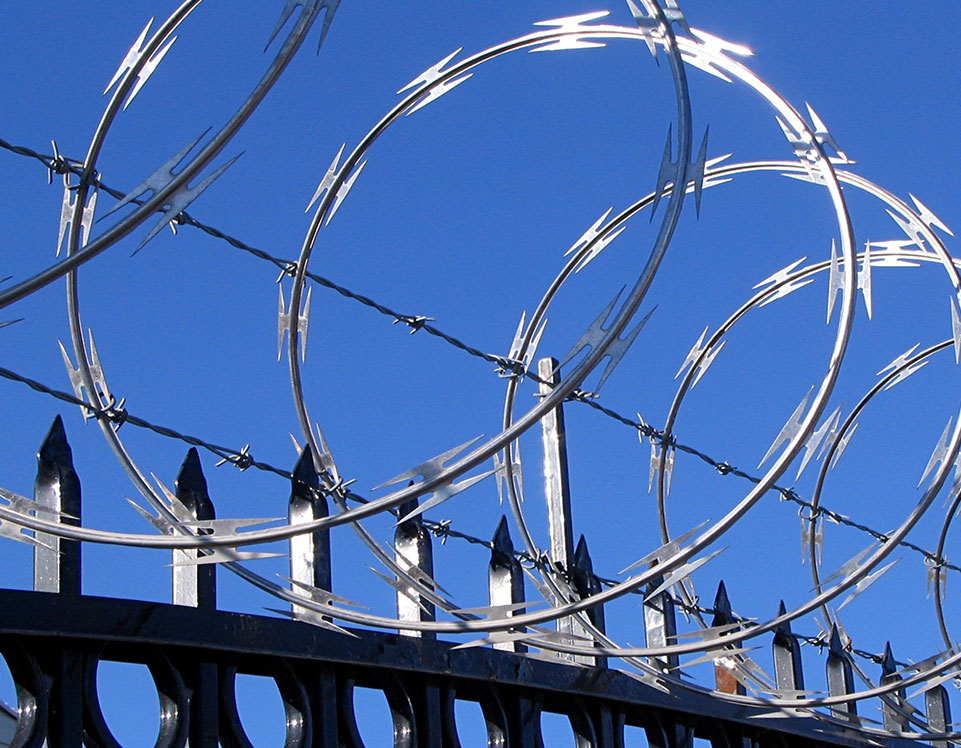The Ultimate Guide to Fiber Optic Security Solutions for Your Company
In a period where safety issues are extremely important for organizations, recognizing the intricacies of fiber optic technology can be transformative. This overview describes how integrating fiber optic protection systems not just enhances information protection however additionally uses advantages like resistance to interference and real-time tracking capabilities.
Understanding Fiber Optic Innovation

The core of a fiber optic cord is composed of a slim glass or plastic facility, bordered by a cladding layer that mirrors light back right into the core. Single-mode fibers are created for long-distance transmission, while multi-mode fibers are appropriate for much shorter distances, frequently used within buildings.
Optical fiber are not just faster yet also a lot more safe and secure than typical electrical wiring. Their integral resistance to electro-magnetic disturbance and the difficulty of touching right into the signal without detection make them a favored choice for companies prioritizing information stability and safety and security. As organizations progressively count on safe and secure and effective communication systems, comprehending fiber optic innovation comes to be crucial for educated decision-making.
Secret Benefits of Fiber Optic Security
When thinking about protection choices for a service, the advantages of fiber optic systems are specifically compelling. Primarily, fiber optic innovation provides extraordinary information transmission speeds and bandwidth ability, making it optimal for managing high-resolution video feeds from monitoring cameras. This ability ensures that safety employees get real-time information, boosting general action times to potential security dangers.
Moreover, fiber optic cable televisions are naturally immune to electro-magnetic disturbance, which can endanger the integrity of traditional copper-based systems. This resistance ensures that the information sent stays safe and undisturbed, supplying an extra reliable safety framework. Additionally, optical fiber are less susceptible to physical damage, as they are made from glass as opposed to steel, reducing upkeep prices and downtime.
Fiber optic systems offer enhanced cybersecurity features, consisting of security capacities that shield delicate information from unapproved gain access to. Collectively, these benefits make fiber optic security systems a durable choice for businesses seeking to enhance their security procedures.
Installation Process and Considerations
Thinking about the complexities entailed, the installment procedure of fiber optic protection systems needs cautious preparation and implementation. The first step includes a detailed site assessment to determine optimum places for cabling and equipment. This analysis needs to consider environmental elements, existing framework, and prospective susceptabilities.

Furthermore, the installation needs to follow neighborhood building regulations and sector requirements. This may consist of collaborating with numerous stakeholders such as building managers, IT teams, and safety personnel to make certain seamless assimilation with existing systems.
Post-installation, extensive testing is necessary to validate system performance and determine any kind of issues that may develop. By focusing on these considerations throughout the installation procedure, businesses can guarantee a robust and efficient fiber optic safety and security system that meets their specific protection demands.
Most Current Technologies in Fiber Optic Security
Current advancements in fiber optic modern technology have dramatically enhanced the abilities of protection systems for services. One of one of the most noteworthy innovations is the assimilation of fiber optic sensing units that can identify vibrations and intrusions along the boundary of a facility. These sensors provide real-time surveillance, making it possible for quick action to potential breaches.
Additionally, the development of distributed fiber optic noticing modern technology permits the continuous surveillance of huge locations with a single fiber cord. This technique not only minimizes setup costs yet likewise improves the dependability of checking systems by getting rid of the requirement for several, separate sensing units.
Furthermore, advancements in multiplexing methods have actually made it possible for organizations to transfer vast quantities of data over fiber optic networks, boosting the capabilities of video clip surveillance systems. High-def video clip feeds can now be sent over fars away find more without loss of top quality, ensuring that security employees have access to clear and actionable info.
Lastly, the usage of fabricated intelligence (AI) in conjunction with fiber optic systems is revolutionizing risk detection. AI formulas can evaluate information from fiber optic networks to recognize uncommon patterns or behaviors, enabling proactive protection steps. These innovations collectively represent a considerable leap ahead in fiber optic safety technology.
Selecting the Right System for Your Business
Choosing the ideal fiber optic safety system for your service is important for guaranteeing optimum protection and satisfaction. To make an enlightened option, analyze your details security needs, considering variables such as the dimension of your premises, the nature of your operations, and possible vulnerabilities.
Begin by assessing the level of safety needed; as an example, risky settings may demand innovative systems with integrated surveillance and invasion detection capabilities. Next, think about scalability; as your service expands, your safety and security system must be capable of expanding to accommodate increased needs without significant overhauls.
In addition, check out the reliability and efficiency of numerous systems. Seek companies with established track records and client reviews that testify to their service quality. It's also recommended to ask about the innovation's compatibility with existing framework, making sure a seamless integration procedure.
Verdict
To my latest blog post conclude, fiber optic safety systems offer a durable option for improving business security frameworks. The integration of high-speed data transmission, resistance to electro-magnetic disturbance, and advanced tracking capacities considerably improves total protection (fiber optic security system). By comprehending the modern technology, recognizing its advantages, and considering the installation procedure, companies can make informed choices. The current developments better boost the performance of these systems, guaranteeing that services remain protected and adaptable in an ever-evolving hazard landscape.
Comments on “Key Factors of Fiber Optics Infrastructure for Security Installations You Need to Understand”